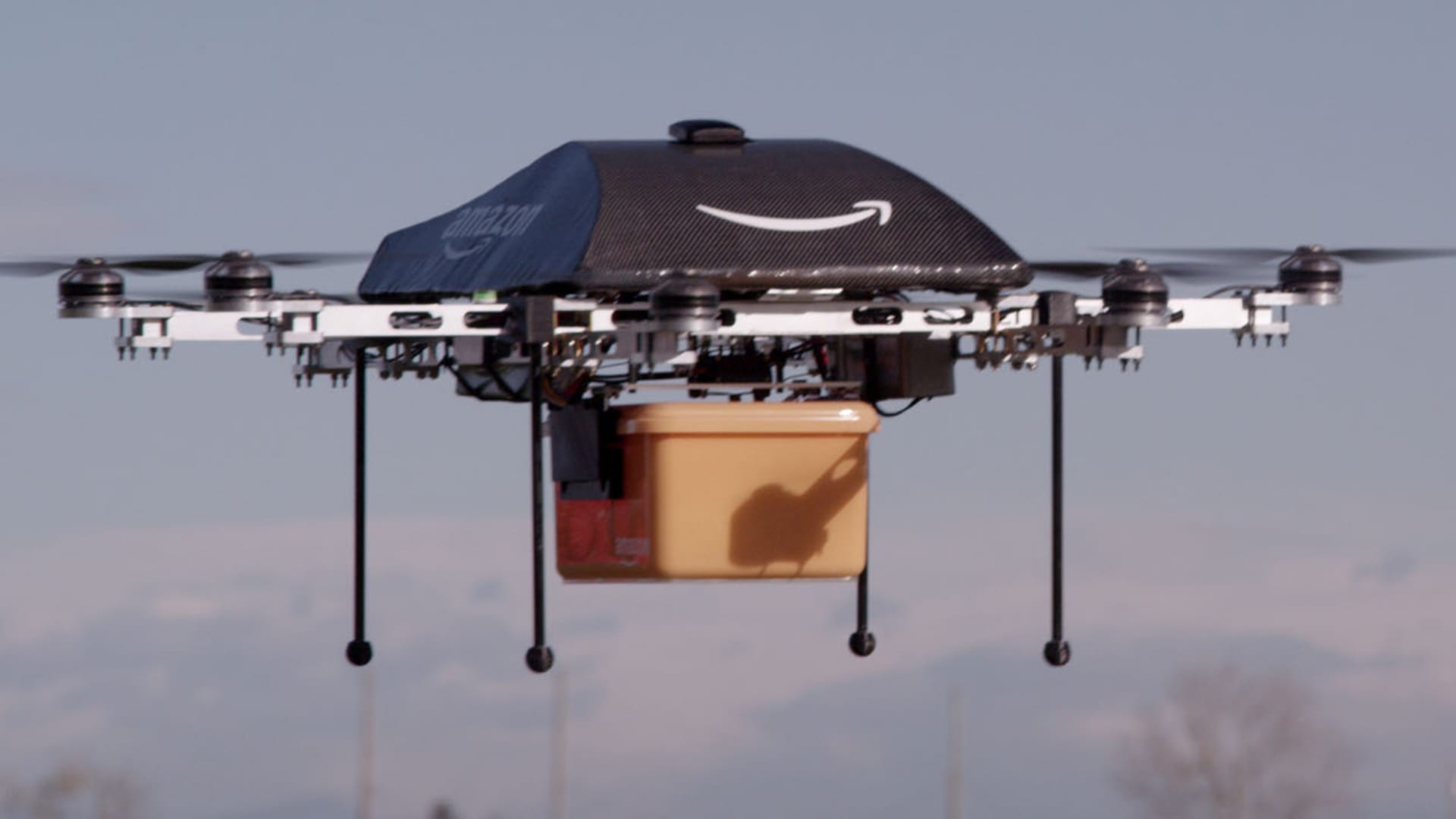US Markets
Saturday, July 16th, 2022 7:37 am EDT

If you are a good worker with marketable skills, you have never been as much in demand as you are right now.
With 5 million more job openings in the U.S. than there are workers to fill them, companies are desperately seeking talent. And increasingly, they are willing to go where the workers are.
“Workforce is always the single most important factor, regardless of whether it’s a manufacturing facility, a corporate office, or something that’s creative in the arts,” said Tom Stringer, managing director in charge of the national site selection practice at BDO in New York.
In the latest survey of the CNBC CFO Council, respondents overwhelmingly listed workforce as the most important factor in deciding where to locate or expand operations. It is also the most cited selling point among states seeking to attract companies, according to CNBC’s 2022 America’s Top States for Business study. So, under our methodology, it carries the most weight in our overall rankings.
To determine which states have the best workforces, we look at a variety of factors including the percentage of workers with college degrees, the concentration of high-tech workers, as well as workers with associate degrees and industry-recognized certificates. We also consider right to work laws protecting employees who decline to join a union, as well state worker training programs, and net migration of college-educated workers.
“Everyone is looking for an edge,” said Cara Christopher, a senior vice president at Lightcast, a labor market data firm that supplied some data on talent attraction for CNBC’s study. “Communities that are doing it right are looking at both attraction and development efforts.”
In 2022, these ten states are winning the war for talent.
10. Maryland
The Old Line State has a line on tech talent, with the second largest concentration of science, technology, engineering and math (STEM) workers after Washington, according to the U.S. Bureau of Labor Statistics. The state is seeking to build on that success with Maryland STEM Connect, linking parents, students and educators with the many federal agencies and military bases in the area.
2022 Workforce Score: 257 out of 410 points (Top States Grade: B+)
Net Migration Rank: No. 28
Adults with Bachelor’s Degree or Higher: 40.9%
Career Education Credential: 13.4%
STEM Workers: 10.1%
Right to Work State? No
9. Oregon
With American workers on the move, The Beaver State is a big beneficiary. The Census Bureau estimates that college educated workers moving to the state outnumber those leaving by nearly two to one. WorkSource Oregon is a statewide partnership between the Oregon Employment Department and state and local nonprofit agencies aimed at retraining workers and connecting them with employers.
2022 Workforce Score: 259 out of 410 points (Top States Grade: B+)
Net Migration Rank: No. 8
Adults with Bachelor’s Degree or Higher: 34.4%
Career Education Credential: 15.8%
STEM Workers: 7.5%
Right to Work State? No
8. Utah
The Beehive State gets its nickname from the industriousness of its workers, and that trait is really paying off these days. The vibrant tech scene in the growing Silicon Slopes region near Salt Lake City is attracting lots of STEM workers. But Utah is also big in career education, with a robust community college system. The state slips in the rankings this year because of its unemployment rate — the second lowest in the nation — which limits the pool of available workers.
2022 Workforce Score: 269 out of 410 points (Top State Grade: A-)
Net Migration Rank: No. 33
Adults with Bachelor’s Degree or Higher: 34.7%
Career Education Credential: 20.5%
STEM Workers: 7.6%
Right to Work State? Yes
7. Arizona
Educated workers are flocking to The Grand Canyon State, and that is making Arizona’s workforce smarter. Labor market data firm Lightcast says average educational attainment in the state jumped 16% in the past five years, one of the biggest increases in the nation. The state also has a ready pool of workers with two-year degrees and certificates. But Arizona’s workforce development program, known as Arizona@Work, has had mixed results getting participants back into the workforce.
2022 Workforce Score: 273 out of 410 points (Top State Grade: A-)
Net Migration Rank: No. 3
Adults with Bachelor’s Degree or Higher: 30.3%
Career Education Credential: 23.8%
STEM Workers: 6.5%
Right to Work State? Yes
6. Florida
The Census Bureau estimates some 200,000 college graduates moved to Florida over the past five years, while only around half that amount left. On a percentage basis, it is the strongest migration level in the nation. The state makes up for a relative lack of tech workers by offering a ready supply of employees with industry-recognized certificates. “They are focused. They have a strong workforce development program,” said Lightcast’s Cara Christopher, who praised the state’s partnerships with colleges and universities.
2022 Workforce Score: 274 out of 410 points (Top State Grade: A-)
Net Migration Rank: No. 1
Adults with Bachelor’s Degree or Higher: 30.5%
Career Education Credential: 21.4%
STEM Workers: 5%
Right to Work State? Yes
5. Delaware
Delaware workers are among the nation’s most productive, accounting for about $140,218 in economic output per job last year. That is according to U.S. Bureau of Labor Statistics and U.S. Department of Commerce data. The state offers strong worker training programs. And with unemployment above the national average, there are plenty of people here to hire.
2022 Workforce Score: 277 out of 410 points (Top State Grade: A-)
Net Migration Rank: No. 23
Adults with Bachelor’s Degree or Higher: 32.7%
Career Education Credential: 13.3%
STEM Workers: 7.2%
Right to Work State? No
4. Washington
No state offers a greater concentration of STEM employees than Washington does. It is a longstanding priority in The Evergreen State. In 2013, the state legislature established the Washington State STEM Education Innovation Alliance. Under the direction of the governor’s office, the alliance brings together labor, education, government and non-profit leaders to advance STEM education beginning in kindergarten.
2022 Workforce Score: 282 out of 410 points (Top State Grade: A)
Net Migration Rank: No. 2
Adults with Bachelor’s Degree or Higher: 36.7%
Career Education Credential: 21.7%
STEM Workers: 10.2%
Right to Work State? No
3. Georgia
The Peach State is a leader in worker training. The state’s workforce development program, WorkSource Georgia, is a network of 19 local WorkSource offices overseen by the state’s technical college system. The localized focus is a key aspect of the state’s effort to align its workforce with the needs of business, and it seems to be working. According to U.S. Department of Labor data, Georgia ranks No. 4 in a key measure of workforce development: moving adults from training to employment.
2022 Workforce Score: 297 out of 410 points (Top State Grade: A+)
Net Migration Rank: No. 7
Adults with Bachelor’s Degree or Higher: 32.2%
Career Education Credential: 21.4%
STEM Workers: 6%
Right to Work State? Yes
2. Texas
Skilled workers are heading to the Lone Star State in droves. And when they get there, they are working hard. Texas is in the top ten for workforce productivity, with $139,549 in economic output per job last year. With unemployment holding above the national average, employers have plenty of those industrious workers to choose from.
2022 Workforce Score: 299 out of 410 points (Top State Grade: A+)
Net Migration Rank: No. 3
Adults with Bachelor’s Degree or Higher: 30.7%
Career Education Credential: 16.3%
STEM Workers: 6.6%
Right to Work State? Yes
1. Colorado
The Centennial State has the second most educated workforce in the nation behind Massachusetts. And those smart workers are staying put. While some other states suffer a brain drain, Colorado is only losing about 10,000 college educated workers per year, far fewer than are migrating there. While not technically a right to work state in which employees cannot be fired for refusing to join a union, the state offers some protections to non-union workers under what it calls a “hybrid” system.
2022 Workforce Score: 302 out of 410 points (Top State Grade: A+)
Net Migration Rank: No. 11
Adults with Bachelor’s Degree or Higher: 36.7%
Career Education Credential: 41.6%
STEM Workers: 9.2%
Right to Work State? Hybrid
This post has been syndicated from a third-party source. View the original article here.




